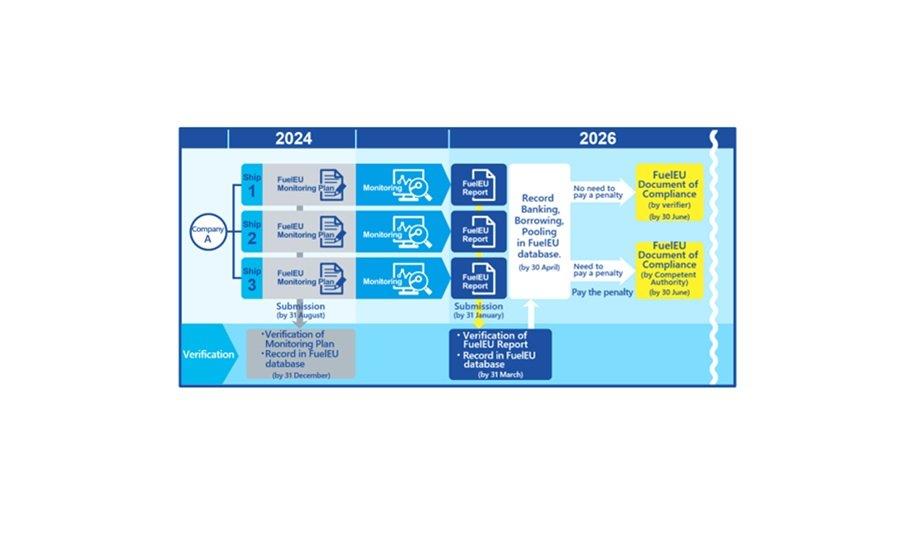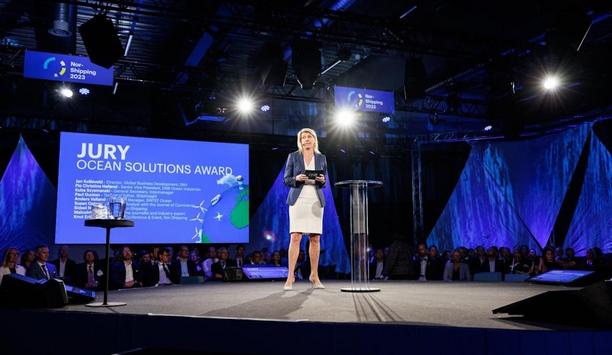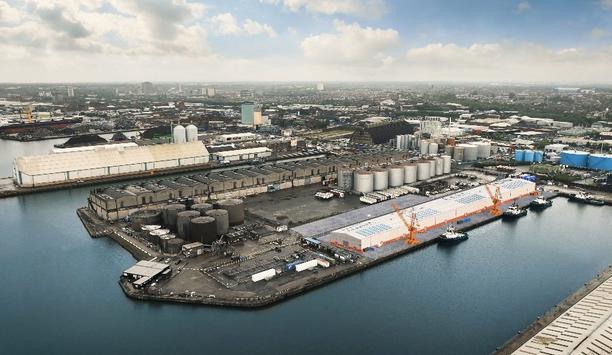FuelEU Maritime, an EU regulation aimed at promoting the decarbonisation of fuels used on board ships, has entered into force and will apply to all ships above 5,000 gross tonnages calling at EU ports from January 1, 2025.
FAQs on the FuelEU maritime
In this 'FAQs on the FuelEU Maritime (2nd Edition)', the explanation regarding the responsible entities under the regulation and the necessary regulatory compliance timeline for shipping companies have been added, and the contents have been updated based on the latest information.
ClassNK will continue to strive to support stakeholders in the shipping sector through such guidance provision as part of the 'ClassNK Transition Support Services.' 'FAQs on the FuelEU Maritime (2nd Edition)' is available on the following page of the ClassNK website.










